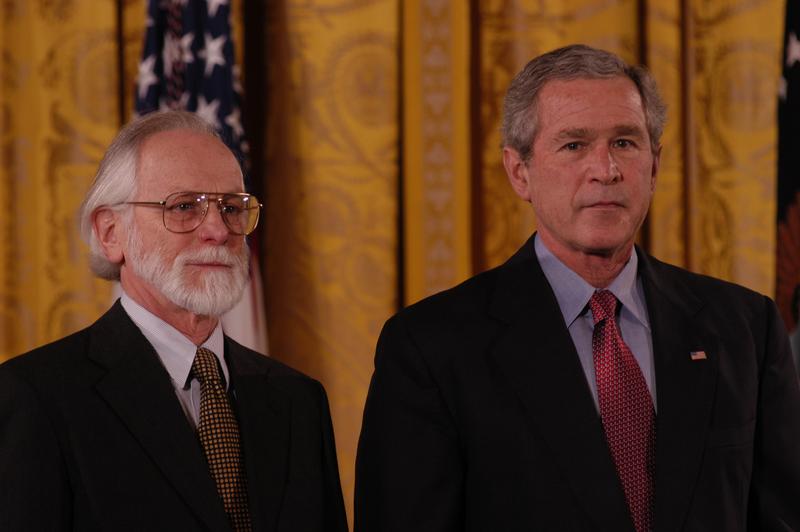As a child, a career in the sciences was perhaps an unlikely choice for J. Michael Bishop. Born in rural Pennsylvania to a Lutheran minister father, Bishop spent much of his youth learning the music of the church and studying history in a two-room schoolhouse. He learned little of science, however, and as a teen believed he would end up in a field like journalism or music. Bishop’s interest in science was piqued outside of school—during summer vacations he befriended a physician who cared for his family—”arous[ing] in me an interest not only in the life of a physician but in the fundamentals of human biology,” Bishop said years later. He attended Gettysburg College with an interest in medicine, and a few years later entered Harvard Medical School with a vague intention of becoming an educator in biomedicine. Yet Harvard, he said, “was a revelation and a trial,” as he learned that the path to an academic career in the biomedical sciences was in research, not teaching. And so he pivoted to research, starting his career at the National Institute of Allergy and Infectious Diseases, and later at the Heinrich Pette Institute in Hamburg, Germany. He ultimately found himself at the University of San Francisco as an Assistant Professor of Microbiology and Immunology, where he was known for his research on retroviral oncogenes. His work with Harold Varmus expanded understanding of how cancer forms—due to alterations to the regular cell genes caused by viruses, radiation, or chemical exposure.
By Jeremy Gordon







